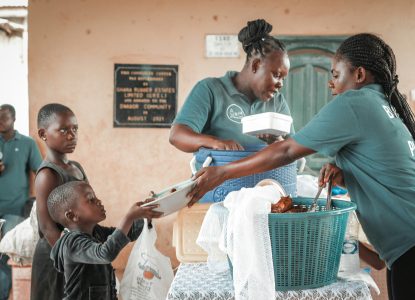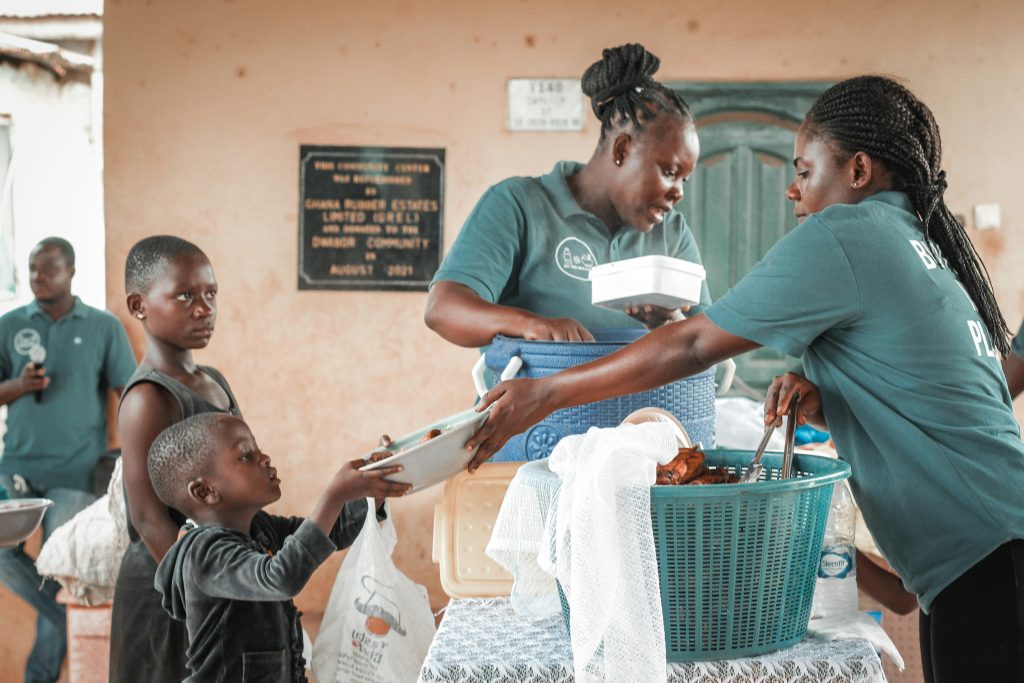By JoAnne Wadsworth, Communications Consultant, G20 Interfaith Forum.
– – –
The G20 Interfaith Forum launched its “Faith in Action: Reflections” webinar series on July 10, 2025, with a powerful discussion on “The Role of Inter-religious Actors in Addressing Hunger and Poverty.” The inaugural session featured Dr. Renier Koegelenberg, Executive Director of the EFSA Institute for Theological and Interdisciplinary Research and Executive Secretary of the National Religious Association for Social Development (NRASD), and Dr. Linda Naicker, an NRF-rated scholar-activist at the Research Institute for Theology and Religion, University of South Africa, whose doctoral research focused on food insecurity among under-resourced women in urban South Africa. Hosted by Sandile Makasi and Yashika Singh, the conversation explored how faith communities can move beyond charitable relief to address the structural causes of hunger in a country where sufficient food is produced but thousands still die from malnutrition.
Dr. Renier Koegelenberg
Dr. Koegelenberg opened with a fundamental challenge to the audience, questioning why hunger persists despite available solutions. He noted that there are enough resources and funding available, excellent research has been conducted by universities globally, and there are multiple successful case studies from faith communities and NGOs that could be scaled up.
“So my starting question is: why do we still have to deal with this scandal? Whose responsibility is it? Why does it happen when the world have enough resources?”
Drawing on his 35 years of experience coordinating interfaith networks, he outlined the unique advantages faith communities bring to addressing poverty: their location within poor communities, their long-term commitment regardless of external funding, and their holistic approach to human needs.
The Global Fund Success Story
Koegelenberg shared a powerful example of interfaith cooperation through his own organization: For nine years, they managed Global Fund grants for HIV/AIDS work across South Africa, creating an unprecedented coalition of Christians, Muslins, and Jews working toward shared goals. The project consulted all denominations and religions to build a consortium that distributed funds to different faith communities nationwide.
“If you focus on the practical basic needs of people, then differences of religion and of doctrine becomes less important.”
He said when people are struggling to survive, theological differences fade into the background. Many programs continued operating even after the original funding ended, sustained by the faith communities themselves.
Faith’s Educational Legacy
Koegelenberg illustrated the long-term impact of faith-based investment through remarkable stories of educational support, representing a systematic pattern of faith-based investment in human potential. Chief Justice Mogoeng Zondu’s legal studies were funded by a Muslim shopkeeper in his local community, while renowned lung specialist Dr. Taban was supported through the Catholic Church until he completed his medical studies.
He traced how some of South Africa’s most prestigious institutions also began with faith communities: Stellenbosch University traces its origins to a Reformed church that started a high school, which developed a faculty of theology, which eventually became one of South Africa’s premier universities, producing many of the nation’s greatest sports stars and leaders. In this way, Koegelenberg demonstrated that faith communities haven’t just fed the hungry—they’ve built the institutions that shape the nation.
Policy Barriers
Well-intentioned government policies can, however, hinder effective partnerships. Koegelenberg described working with a unit in the Department of Social Development that recently adopted an approach requiring only designated child-registered institutions to provide support that faith organizations had been delivering comprehensively for 20 years. Without that official designation, government funds cannot be accessed, excluding experienced faith organizations, proven partners who have worked with the government for decades, when often the government organizations themselves lack similar levels of staff, money, and expertise.
“Ubuntu is much more than just giving people food. It’s our common humanity caring for one another and taking responsibility for our future.”
Dr. Linda Naicker
Dr. Naicker brought a deeply personal perspective to the discussion, grounding her academic work in lived experience of food insecurity. She emphasized how her scholarship in gender and religion is directly informed by her background and focuses on the realities of under-resourced urban women in South Africa.
“For me addressing hunger and poverty is deeply personal. I come from a food insecure background, and so I understand firsthand the daily struggles and dignity-eroding effects of not having enough to eat.”
The Intersection of Gender and Hunger
Dr. Naicker painted a stark picture of how food insecurity particularly affects women in South African communities. She explained that “black women still continue to be the most marginalized of the marginalized.” In South Africa’s poorest communities, women bear the heaviest burden of food insecurity. Even among equally impoverished families, men retain economic advantages and power over women. Desperate mothers become sites of struggle, forced into activities that damage their health and dignity simply to feed their children.
“Black women remain the most marginalized group in post-apartheid South Africa, carrying the combined weight of racial, gender, and economic oppression. Their bodies literally become battlegrounds in the fight against hunger.”
Faith-Based Programs Making Real Impact
Dr. Naicker provided numerous concrete examples of successful faith-based initiatives across South Africa:
The Desmond Tutu TB Center combines health, education and community outreach, directly reducing stigma around tuberculosis in vulnerable populations. In KwaZulu-Natal, Bapu Melele Children’s Home provides daily food, healthcare, education and refuge to over 250 children while employing 150 staff.
The Suavana Children’s Project feeds 400 orphaned children daily through school-based vegetable gardens, slashing household food costs from R4,800 monthly to R900. Operation Hunger delivered more than 2 million meals to 10,260 learners in 2024 alone, while Never Ending Gardens has created 60,000 backyard gardens across the country.
COVID-19: When Broken Systems Were Exposed
Dr. Naicker used the COVID-19 pandemic to illustrate what she called South Africa’s “broken food system.”
“While middle-class South Africans practiced social distancing in their homes, the poor stood in kilometer-long lines, packed together, waiting for food parcels. The pandemic didn’t create South Africa’s food crisis—it simply made the fundamental inadequacy of the country’s food distribution systems impossible to ignore.”
The Eucharist as Call to Justice
Drawing from theologian Bi Arugaba’s work, Naicker described the Eucharist as more than ritual of spiritual sustenance—it’s a mandate for social action. The sharing of bread and wine symbolizes fellowship, unity, and a compassionate call to address empty tables worldwide.
“My faith calls me to help build a world where no one goes hungry, not just through prayer and ritual, but through deliberate, informed, and sustained action.”
Moving Beyond Relief to Transformation
Both speakers emphasized moving from emergency response to systemic change. The Methodist Church runs mentorship programs connecting youth with employment. Hope Restoration Ministries offers vocational training to break poverty cycles. The African Full Gospel Church combines urban entrepreneurship training with rural farming projects, reaching over 3,000 people annually.
True impact, they argued, should be measured by how deeply programs empower individuals and transform communities beyond immediate relief. The upcoming G20 Interfaith Forum in Cape Town represents an opportunity to move from managing the “scandal” of hunger to ending it entirely.
The next session in the series, scheduled for July 17, will focus on “Economic and Financial Action: Faith Perspectives on Economic Justice.”
– – –
JoAnne Wadsworth is a Communications Consultant for the G20 Interfaith Forum Association and Editor of the Viewpoints Blog.



